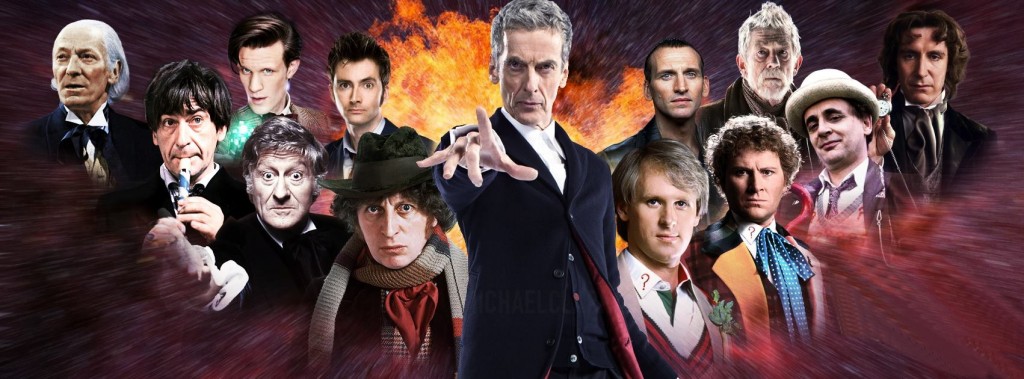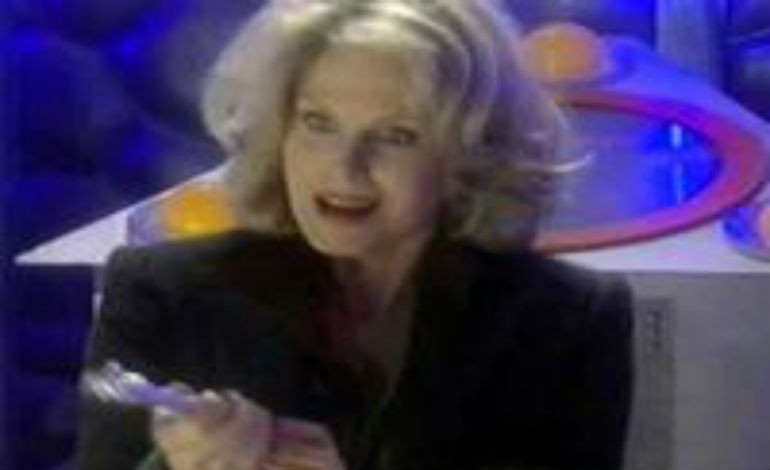A Female Doctor: A Sex + Gender, Timey Wimey Talk
There were hints of it when The Doctor regenerated at “The End of Time.” Neil Gaiman’s episode “The Doctor’s Wife” pretty much stated that Time Lords can change sex from regeneration. And then, of course, we have our friend Missy — or The Mistress — to consider from this past year’s Doctor Who. And according to Steven Moffat, the man who also wrote the two-episode comedy special Doctor Who and The Curse of Fatal Death — the role of The Doctor will eventually be played by a woman. According to Moffat, they have been laying down the groundwork to do this for some time, but it is a question of finding the right personality before they can make this an eventuality.
Doctor Who, particularly in the era of Russell T. Davies, has been pushing the envelope of just what future, and present, life can be: and how far it can be accepted as a given. There is, and there will be, resistance on the part of some fans. I mean, The Doctor has been consistently male for at least thirteen incarnations now — from 1963 all the way to the present — and even for those who are not outright dismissive or hateful towards the idea, it would take some getting used to.
But, at the same time, would it really?

Could it be time for a female Doctor? Steven Moffat says, “Possibly.”
The Doctor has changed a lot throughout the years. He is the Lego-equivalent of a protagonist: even though you can rearrange him into different shapes, sizes, and patterns the building blocks of him as a character — his core — will always be the same. This allows the people working with him to tell new stories about his character while always making it clear that he is The Doctor. And myths change over time: they adapt according to the times and even the culture of the audience.
There are some interesting implications, of course. There is the matter of LGBTQIA representation to consider with regards to sexuality and gender. For the most part, The Doctor has been portrayed as asexual and while it’s tempting to mention that in latter years he has become a lot more romantic and has displayed feelings and more physical expressions of love towards his Companions and other characters, these are not necessarily mutually exclusive ideas. Certainly asexuality does not exclude the possibility of platonic love — which seems to be a default setting of The Doctor’s character — and it also doesn’t outright dismiss the notion of romantic or even physical love.
So what if The Doctor has relationships with male or female Companions, or other characters? Does it really matter what body The Doctor has at the time? Certainly this wouldn’t affect The Doctor’s brilliance or core personality. In fact, this would make some good stories in and of themselves. I mean think about it: The Doctor changes into a woman for the first time in her life. Does it take some getting used to? Do her relationships change? Does this create discomfort in her Companions, or another level of relatability?
And this isn’t even going into gender. While Missy prefers to be called The Mistress or a Time Lady, would The Doctor want to be considered female? Would she insist on male pronouns: as gender does not necessarily equal sex? I’m thinking that she would adopt female pronouns as Steven Moffat and others probably wouldn’t delve too much into this nuanced issue for mainstream television. Personally, I could have seen Missy insisting on being called The Master and it would have definitely fit her core character to do so.
I think the idea I’ve been thinking about the most since the possibility of sex-changing in regeneration actually came about is whether or not The Doctor would be a good representation of a transgender — or gender-fluid — character. On one hand, I can see some transgender and queer fans completely supporting this idea and perhaps relating to this character more: expanding on the idea of a complex LGBTQIA universe that Davies himself brought to television.
But then there is the opposite side of the coin. Some fans have accused the creation of characters such as the female Thor, and the Black Captain America of being gimmickry: as something of a fascinating “What If?” oddity that will be retconned out or marginalized again once the status quo of those franchises are restored. Certainly, there is something to be said about making a story about an entirely original female character instead of temporarily gender-bending an established one. One concern I have in seeing a female Doctor is that she will, inevitably, regenerate again and that this last regeneration will either have less time on screen, or become something of a one-off.
I think that this can be done under a fine hand and certain degree of sensitivity, but whether or not Steven Moffat and his writers are up to the task is a whole other story entirely: though the fact that Doctor Who has hired Catherine Tregenna, its first female writer in about six years, might hopefully be a step in the right direction.
Personally, I want to see a female Doctor. I want to see what she would be like and to watch her dance toe-to-toe with the messed up intrinsically Lovecraftian madness of the Whoniverse. I want to see her laugh and cry, be silly, fierce, and terrifying, a fiery angel and a goofy clown, and loving hard, while pulling her sonic screwdriver on some Daleks. It could be another adventure for The Doctor: a new aspect of the character’s life that we can see unlocked in both external and self-exploration.
In the end, I want to see The Doctor give her Companions The Talk. You know the one. Whereas humans get the Birds and the Bees talk, Time Lords get The Timey wimey, wibbly wobbly Talk. I’d like to see her explain that just as she understands, or doesn’t understand, or intuits time so too does she understand, not understand, or intuit her own sense of sex and gender. So too does she understand, not understand, and intuit herself.
But really, I just want to see The Doctor’s happiness as she gets her ultimate wish: when, at long last, she finally gets to be ginger.







